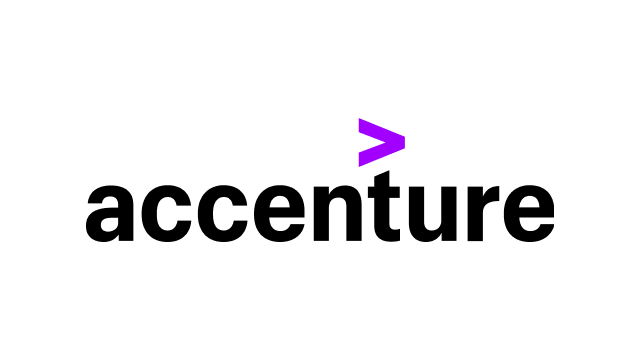By utilizing AI and analytics, businesses can boost productivity, deliver new products and services, accentuate business value chains, and address supply chain issues.
International Data Corporation (IDC) forecasts global spending on AI systems will jump from $85.3 billion in 2021 to more than $204 billion in 2025. – IDC
So naturally, a seamless AI implementation makes for an interesting AI success use case. But why are we talking about AI and analytics here?
This article will cover some crucial elements to help you understand how AI and its successful implementation can spur new economic opportunities for your business. We will also share some powerful AI success stories with you.
Want to keep up with the latest
AI advancements? Check out our up-to-date AI Tracker.
Explore NowWhat is driving AI adoption?
AI can drive significant efficiency and productivity gains across industries. A recent study estimates that AI could increase global GDP by $15.7 trillion by 2030.
AI/ML is already being used by many businesses in many sectors, from manufacturing to hospitality to retail and aerospace.
Where the top companies are integrating AI technology as an integral part of their operations, small and medium enterprises have only been able to utilize the technology to run pilot projects in specific departments such as sales, marketing, etc.
AI is also used to develop new products and services, create new customer experiences, and optimize business processes. All of these factors are crucial in driving AI adoption.
It's simple. The global pandemic actuated businesses to rely on digital technologies like AI and analytics to help them create opportunities amidst challenges and get better forecasting capabilities.
The worldwide AI adoption is growing at a tremendous pace. - IDC
The survey highlighted the need of boosting customer experience, building employee efficiency and innovation as the main factors behind the increasing AI adoption.
Other factors include:
- IT automation
- Intelligent task/process automation
- Automated threat analysis
- Supply and logistics
- Automated customer service agents
- Automated human resources management
“Early adopters report an improvement of almost 25 percent in customer experience, accelerated rates of innovation, higher competitiveness, higher margins, and better employee experience with the rollout of AI solutions.” – Ritu Jyoti VP of AI strategies, IDC
Another interesting fact from the same survey is that while larger companies (5000+ employees) prioritize automated customer service agents and human resources, small and medium firms (less than 1000 employees) prioritize IT automation.
So if you were not an early adopter, we understand! Uncertainty often gets associated with any organization's adoption and implementation of a new technology stack.
But if you are not yet planning to join the trend, this article will be useful.
How has AI been successfully implemented? The AI adoption success stories
By 2035, AI can double economic growth rates in 12 developed countries and boost labor productivity by up to 40%. – Accenture
While AI is still in its early stages of development and deployment, several AI success stories already provide valuable lessons for other organizations which are considering AI adoption.
If you are one of those organizations, these AI success stories should give you the confidence to move forward.
1. Accenture: AI-powered recruiting

To keep up with the increasing demand for digital talent, Accenture turned to AI-powered recruiting.
The company developed an AI tool to screen resumes and identify the most qualified candidates for open positions.
Their AI tool can read and analyze resumes 50% faster than human recruiters, which has saved the company a significant amount of time and money.
2. L'Oréal: AI-powered customer service

L'Oréal's AI-powered customer service chatbot, Kérastase Paris Hair Coach, provides personalized hair care advice to users. The chatbot uses AI to understand each user's hair type and recommend the best products for their needs. Since launching in 2017, the chatbot has helped L'Oréal increase its online sales by 30%.
AI integration with retail systems streamlines the processes to optimize and personalize customer experiences, forecast accurate demand-supply insight, manage inventory, and more.
3. UPS: AI-powered package delivery

UPS has developed an AI-powered package delivery system that optimizes the route of each UPS driver. The AI system considers traffic conditions, weather, and other factors to determine the best route for each driver. As a result, UPS has reduced its fuel consumption by more than 6 million gallons per year.
Our automated last-mile delivery platform also works on the same grounds that helps many of our clients to automate their shipment planning, dispatching, fleet assignment, route management, real-time monitoring.
4. American Express: AI-powered fraud detection

To keep up with the competition, American Express used AI for customer retention and fraud prevention. The company's focus on customer experience has always been one of its key differentiators. AI helped the company enhance its customer service even further.
With the help of IBM Watson, Amex built a virtual customer assistant called Emmy. Emmy has been successfully handling more than 5 million customer queries per month with accuracy rates exceeding 90%.
5. Coca-Cola: AI-powered marketing

Coca-Cola is one of the first companies to use AI for marketing purposes. The company used IBM Watson to develop its AI-powered marketing platform, "the Coca-Cola Connections Machine."
With this platform, they could identify and target potential customers with personalized content and offers. As a result, the company saw a significant increase in sales and brand awareness
6. Walmart: AI-powered supply chain management

Walmart is using AI to optimize its supply chain and logistics operations. The company has developed an AI-powered platform called "Einstein," which helps track inventory, predict customer demand, and optimize product delivery. As a result, Walmart has reduced costs and improved customer satisfaction.
Rapidops has its own arsenal of Logistics 4.0 products that can help organizations discover operational resilience and unlock better opportunities with smart intelligence.
7. HSBC: AI-powered financial crime prevention

HSBC is using AI for financial crime prevention. The company has developed an AI-powered platform called "Connected Money," which helps detect and prevent financial crimes such as money laundering and fraud. Connected Money can detect suspicious activities by analyzing transaction data and customer behavior.
8. Mayo Clinic: AI-powered healthcare

The clinic's AI cardiovascular team is leading the change in healthcare industry by applying these techniques to the early prediction and diagnosis of severe and complex heart problems.
A recent study from the Mayo Clinic utilized AI to develop a new screening tool for left ventricular dysfunction in people without any noticeable symptoms.
The AI-assisted screening tool identified those at risk of left ventricular dysfunction 93% of the time. To give you some perspective, a mammogram is only accurate 85% of the time.
What can you learn from these AI adoption success stories?
So why are organizations adopting AI for transforming their business? Not just because they must be agile and resilient, but also to be innovative, and be able to scale.
We hope these AI success stories highlight that business executives eagerly want AI-assisted processes and are already incorporating the technology in order generate better revenue.
Top two key lessons that we can learn from these AI success stories:
- Every industry leader can implement AI to drive significant efficiency and productivity gains across their many processes.
- Leaders can develop new products and services, enhance customer experiences, and shape business processes.
Concluding thoughts: Create your AI adoption success story
AI expertise is focused more on developing commercial applications that optimize efficiencies in existing industries – Jayesh Mori, CEO, Rapidops Inc.
AI is a game-changing technology with the potential to significantly impact your organization. AI may help your company generate efficiency, increase productivity, and expand by allowing you to automate routine tasks. But apart from that, it can do so much more, as witnessed in previous AI success stories.
If the C-suite is involved from the start in AI plans and strategies related to data identification, employee training, and output refinement, the organization's overall experience with AI will be much smoother.
If this guide helped you understand the benefits of AI implementation and if you want your company to gain a better competitive advantage with data analytics, AI and ML then do get in touch with us.

Saptarshi Das
Content Editor
9+ years of expertise in content marketing, SEO, and SERP research. Creates informative, engaging content to achieve marketing goals. Empathetic approach and deep understanding of target audience needs. Expert in SEO optimization for maximum visibility. Your ideal content marketing strategist.

Let’s build the next big thing!
Share your ideas and vision with us to explore your digital opportunities
Similar Stories
- AI
- 4 Mins
- September 2022

- AI
- 9 Mins
- January 2023


Receive articles like this in your mailbox
Sign up to get weekly insights & inspiration in your inbox.

